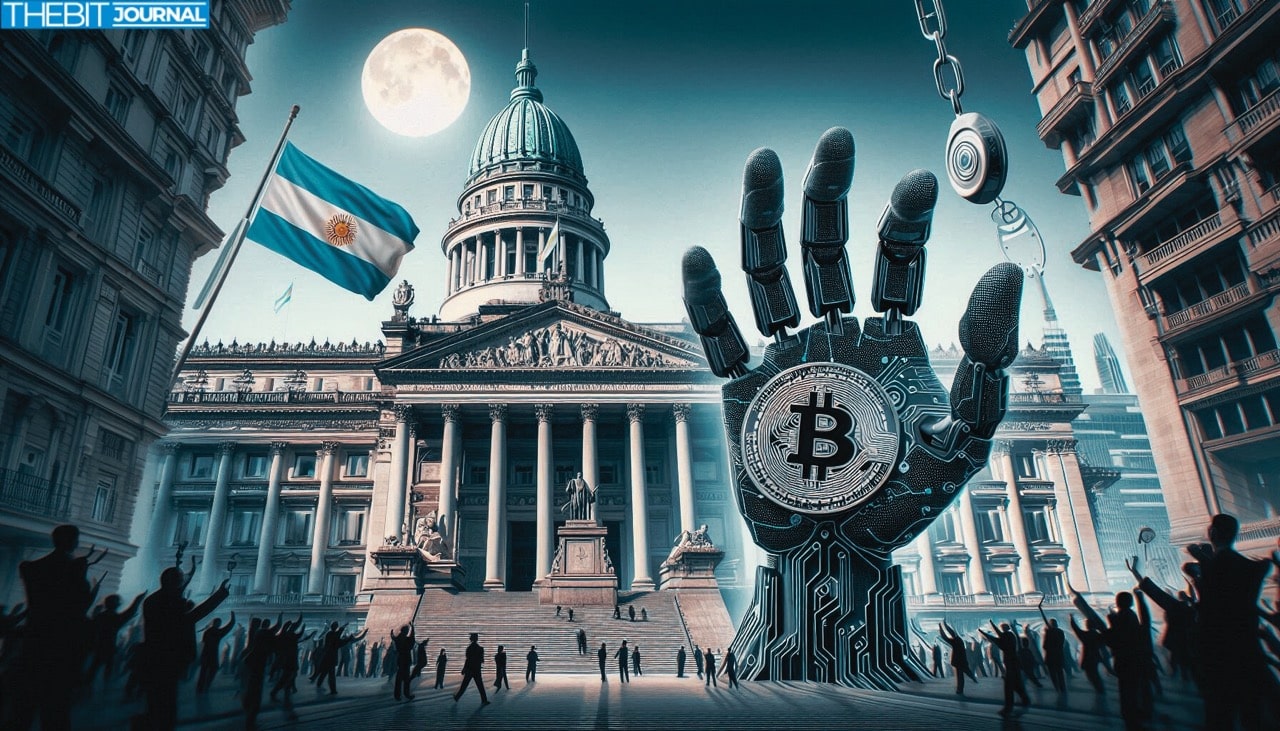Argentina’s politics took a decisive turn this week as the lower chamber of Congress greenlit a formal investigation into the controversial Libra cryptocurrency, a token reportedly linked to President Javier Milei and his inner circle. The commission, backed by 128 lawmakers and opposed by 93, will examine whether top officials were complicit in the launch and collapse of the token that has left thousands of Argentines financially wounded.
The investigative commission, scheduled to begin its proceedings on April 23, will operate for a three-month period. It will gather testimonies, subpoena relevant documentation, and assign responsibility based on its findings. President Milei, his sister and Cabinet Secretary Karina Milei, and other high-ranking allies are expected to be the focus of questioning.
The probe comes after weeks of mounting criticism and legal threats surrounding the Libra token which Milei promoted via social media in February. Hours after its debut, the token’s price nosedived, with local media describing the event as a “digital rug-pull” that wiped out user funds and stoked distrust in the country’s evolving crypto economy.
Libra Token Collapse Sparks Political and Legal Firestorm
The investigation is just one of several unfolding across jurisdictions. The Argentine judiciary has already opened a parallel inquiry, while a class-action lawsuit filed in March in New York by Burwick Law accuses the token’s creators and promoters of misleading investors.
Though President Milei has repeatedly denied direct involvement in Libra’s launch, critics argue that his public promotion of the project via official platforms lent legitimacy to the token. “If you go to the casino and lose money, that’s your problem,” Milei reportedly said in a February statement, dismissing liability.

Speculations are that even if the president didn’t launch the token himself, a public figure of that stature carries enormous weight in influencing public behavior. If proven complicit, there could be consequences under both local and international financial fraud statutes.
Libra, launched under the branding of “La Libertad Avanza” also the name of Milei’s political party, was pitched as a crypto solution to support Argentine small and medium enterprises (SMEs). Promoters promised early access rewards and business grants, prompting thousands of investors to pile in during the token’s initial run. However, the project’s whitepaper lacked legal disclaimers, smart contract audits, or a clear governance structure, red flags that were widely ignored amid national enthusiasm.
Digital Assets and Accountability in Argentina
Argentina has long had a turbulent relationship with cryptocurrencies. From capital controls to runaway inflation, digital assets have often filled a gap left by traditional financial institutions. The Libra scandal marks one of the first times a sitting government has been directly linked to a failed project that led to financial losses for citizens.
The newly formed congressional commission will be made up of 24 representatives across multiple parties and is empowered to compel testimony. Early reports suggest subpoenas could extend to the token’s founding developers, marketing affiliates, and government tech advisors involved in the project’s rollout.
Local media outlets such as La Nación and Clarín have called the congressional approval a “hard political setback” for Milei, who has seen his approval ratings dip since the Libra fiasco. Many within his own coalition abstained from the vote, signaling potential fractures in political loyalty amid rising scrutiny.
International Implications and the DOJ’s Shadow
What gives the Libra case broader weight is its potential to cross international legal lines. U.S.-based investors affected by the token collapse have reportedly joined a class action filed in the Southern District of New York. Additionally, the U.S. Department of Justice (DOJ) is reportedly reviewing whether the project’s U.S.-facing marketing practices violated federal securities law, per sources familiar with the matter.
The U.S. class action names unnamed government officials as co-defendants pending discovery. It accuses them of using political platforms to manipulate the token’s price trajectory and create artificial demand, a tactic historically linked to pump-and-dump schemes.

Crypto and Populism: A Risky New Frontier
Javier Milei, known for his libertarian economic views, has been a vocal supporter of Bitcoin and anti-central bank rhetoric. His alignment with a volatile, unsanctioned crypto project mirrors broader concerns about how digital assets can be weaponized in political narratives.
In response, Argentina’s Comisión Nacional de Valores (CNV) has renewed calls for tighter oversight of digital assets promoted by public figures. Proposed reforms could mandate pre-approval of promotional content tied to high-risk financial products and impose fines for nondisclosure.
Meanwhile, the mood among affected investors remains grim. On social media, hashtags like #EstafaLibra and #MileiTokenScam continue to trend as victims share stories of financial loss and demand restitution.
Conclusion: A Political and Financial Reckoning
The Argentine Congress’ decision to launch a formal investigation into the Libra debacle could be a watershed moment for both political accountability and crypto regulation in Latin America. With multiple investigations underway, domestic and international, and mounting pressure on the Milei administration, the coming months are likely to determine not just the legal fate of those involved but the regulatory future of state-affiliated crypto ventures in Argentina.
As the commission begins its work on April 23, the global financial community will be watching. Whether this becomes a cautionary tale or a precedent-setting crackdown remains to be seen.
Follow us on Twitter and LinkedIn, and join our Telegram channel.
FAQs
What is the Libra token linked to President Milei?
Libra is a cryptocurrency reportedly promoted in February 2025 by Argentine President Javier Milei. It was introduced as a support tool for SMEs but quickly collapsed in value, prompting legal and political scrutiny.
Who is being investigated by the Argentine Congress?
The investigation targets President Milei, his sister Karina Milei, and other top government officials allegedly involved in the Libra token’s launch and collapse.
What legal actions have been taken against Libra so far?
Besides the Argentine congressional probe, there’s a class-action lawsuit in New York and local judicial investigations underway. The U.S. Department of Justice is reportedly reviewing aspects of the case.
Why is the Libra case significant for crypto regulation?
This is one of the first instances where a government’s top officials are tied to a failed cryptocurrency project. It could set legal precedents for public figure accountability in crypto promotions.
When will the investigation begin, and how long will it last?
The commission begins work on April 23, 2025, and will have three months to submit its report.
Glossary
Rug Pull: A crypto scam where developers abandon a project and run off with investors’ funds.
Class Action: A legal procedure allowing multiple plaintiffs to bring a case against a defendant as a group.
CFTC: U.S. Commodity Futures Trading Commission, a federal agency that regulates futures and options markets.
Pump-and-Dump: A manipulative scheme where the price of an asset is artificially inflated to attract investors before the perpetrators sell off holdings.





























